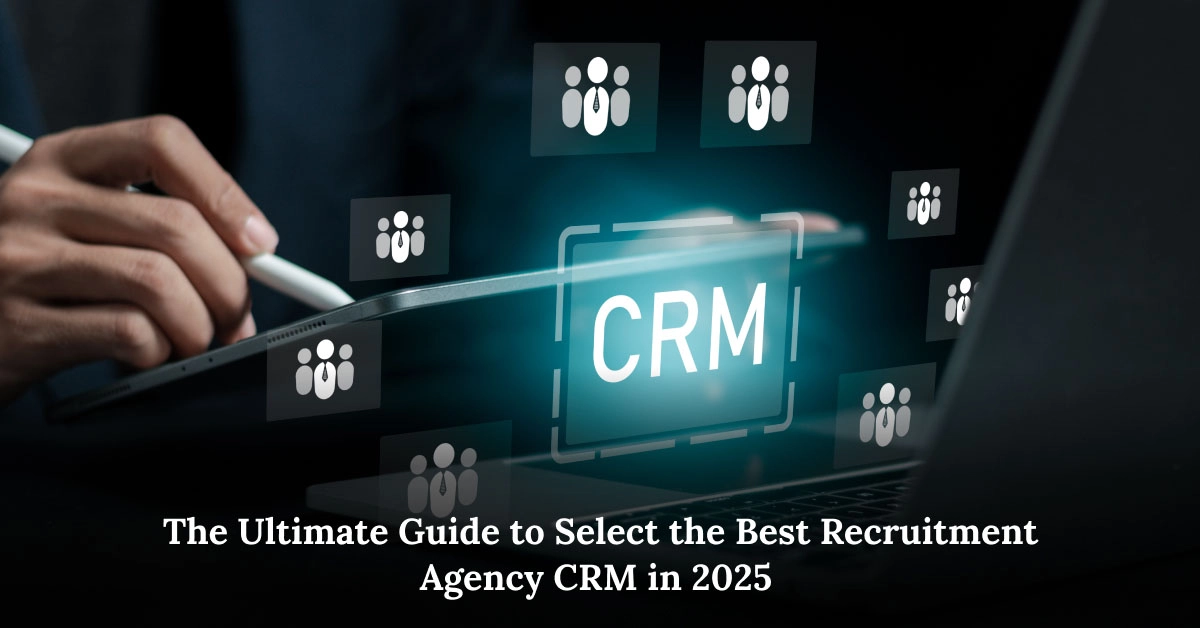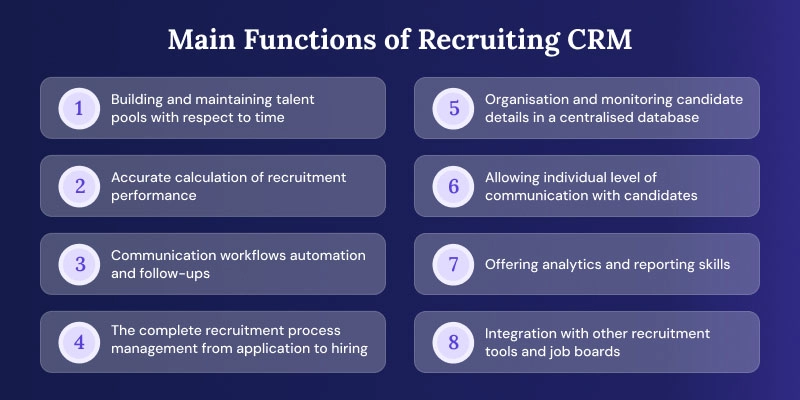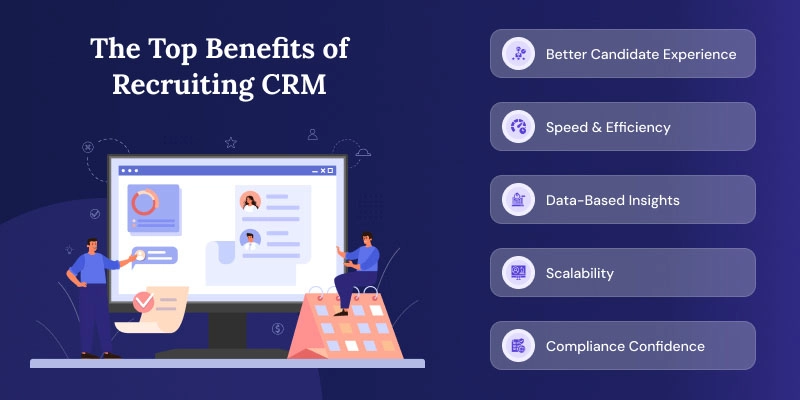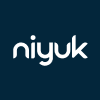The Ultimate Guide to Select the Best Recruitment Agency CRM in 2025

Recruitment team of your recruitment business needs to have lot of email communications and correspondence with clients and various candidates every time. This makes the team completely busy in this huge communicational activity. So, it must be centralised for easy management of the communicational flows. Here the role of Recruitment Agency CRM comes in the picture.
CRM for recruitment agency is a new ray of hope.
Latest recruiting CRM tools are excellent performers apart from handling and management of this type of data. These robust systems not only simplify the candidate communications but also automate schedule of interviews. The systems elaborate your hiring pipeline and support in key metrics monitoring,espscially for metrics like time-to-fill and rate of placement.
In this relevant blog from niyuk, you will get the entire guidance explaining everything you need about recruiting CRM systems. A best crm for recruiting is a must today.
Here we will be explaining implementation strategies and analytics, apart from core features, which will be transforming your existing hiring process.
Concept and Importance of Recruitment CRM at Present
A recruiting CRM – Candidate Relationship Management system is a specialised platform building and nurturing long-term bonding with candidates. This applies to both existing job seekers and idle talent. Recruiting CRM is a centralised hub which is managing the complete recruitment framework and positive connections with prospective talent.
What is the Concept and Main Functions of Recruiting CRM?

A recruiting CRM functions as a centralised database to support you identify, contact, and assess candidates while retaining connections irrespective of the hiring results.
The core functions are:
- Building and maintaining talent pools with respect to time
- Accurate calculation of recruitment performance
- Communication workflows automation and follow-ups
- The complete recruitment process management from application to hiring
- Organisation and monitoring candidate details in a centralised database
- Allowing individual level of communication with candidates
- Offering analytics and reporting skills
- Integration with other recruitment tools and job boards
In the present time, recruiting CRM automates complex tasks such as task sharing and data entry. This substantially drops down manual errors. It supports your team to focus on meaningful candidate interactions instead of administrative busywork.
Recruiting CRM is a polished software system which really simplifies your recruitment operations by effectively monitoring and controlling or managing candidate relationships.
This required component of your recruiting process supports in candidate data management, offering personalised outreach, utilising latest analytics to improve your hiring strategies.
Journey of Recruiting CRM Since 2020
The awakening of recruitment CRMs has been fabulous. These systems mainly worked as easy tools to manage candidate data and track communications before 2020. By 2025, they have come up as required components of talent acquisition.
Latest and trending Recruiting CRM like Niyuk now applies advanced AI algorithms for candidate matching, customised communications and predictive analysis. CRM for recruiting work as comprehensive platforms offering end-to-end functionality to drive smart, analytical decision making.
The highest change between 2024 and 2025 has been the rise of comprehensive talent intelligence platforms.
These luxurious systems analyse large amounts of data from various sources. They make an informal view of the talent canvas and allow more informed decisions.
Stop Juggling Across Spreadsheets
Simplify candidates and customer interactions with the perfect Recruitment Agency CRM with Niyuk
Features of Modern Recruiting CRM
Modern Recruiting CRM tools have developed to handle the complexities of today’s talent hiring world. These platforms transform how recruiters connect with prospective candidates and manage hiring processes.
A SHRM survey in 2022 detected that 64% of HR professionals use AI or automation to analyse or screen resumes and 69% to communicate with applicants in the entire interview process. Features like AI-based Talent Matching and Smart Candidate Engagement Chatbot make it viable while using the system.
Also, there are various useful features available in the Recruiting CRM, like job portals for best reach and recruitment marketing, client-side dashboards for the best user experience, and AI based video interviews.
The Top Benefits of Recruiting CRM
Implementing the right CRM recruitment system gives remarkable improvements for your recruiting agency or team.
Find here some of the biggest benefits of the recruiting crm brings to the table.

1. Better Candidate Experience
Recruting crm keeps your talent resource database fresh, updated and mobile friendly with website portals. This results in happy and satisfied candidates with high rate of retention.
2. Speed & Efficiency
CRM for recruiting gives the automation of time-taking tasks i.e. reference checks, onboarding, and compliances tracking. Recruiters may emphasize on filling roles, not just forms.
3. Data-Based Insights
You can real-time analytics on job progress, candidate talent pool quality, and consultant’s efficiency. Search top performers and sourcing channels delivering results.
4. Scalability
Catering of high candidate volumes, clients, and placements without increasing team people or surrendering on service quality.
5. Compliance Confidence
CRMs preserves right-to-work documents and delicate data safely, lowering risk and giving peace of mind.
Agencies using efficient CRM recruitment solutions typically see fast time-to-fill, strong client and candidate engagement, and great overall profitability.
There are numerous benefits of the Recruiting CRM, and It supports you in various ways, like saving the working time, money, and energy in efforts of the hiring team.
What are the Major Differences between Recruiting CRM vs ATS?
The difference between a basic applicant tracking system (ATS) and a comprehensive recruiting CRM comes across its relationship-building capabilities. It is believed that the ‘relationship’ factor shows that recruiting people who contribute to the company’s vision, values and culture is more vital than just filling a position”.
An Applicant Tracking System (ATS) is a workflow and compliance tool managing applicants via hiring. It tracks applications for certain job openings. ATS and recruitment CRM are both valued. They serve different objectives.
As compared to ATS vs Recruiting CRM, a Recruiting CRM enhances your sourcing efforts by grabbing passive candidates ahead of what you required. It maintains an environment of all passive and active candidates, with existence of previous applicants already in your system.
When it comes to diversify the talent pool and getting fulfilment of diversified hiring objectives, recruitment agency CRM is the right one. On the other hand, the ATS manages those candidates only who have already applied.
A CRM takes a go-getter approach and supports you for building talent pools of non-applicants fitting in your culture and open roles.
Parameters to Select the Right Recruitment Agency CRM for Your Requirements
In general, there is a hardest chance that you are searching for a system based on your specific needs, and only some options are available. You will also face the same while selecting your recruitment CRM for an agency or firm.
At first, you must be clearly aware about your requirements. If so, you can refer for factors like pricing, various pricing models, their reviews, and the user-friendliness of the tool.
Remaining main factors impactful for the choice would be as following:
- Flexibility and Scalability of the tool
- Is it offering a free demo before the purchase?
- How is the quality for customer support and after-sale service?
- How it integrates with other tools?
You can look out for and brainstorm many factors affecting recruiting CRM which will give you confidence about your confirmation.
Place More Candidates Fast.
Give your team the edge with a robust Recruitment Agency CRM
About Niyuk Recruiting CRM Available in the Market
Now, you would be thinking about identifying the best recruiting CRM which comes with the benefits we have mentioned here in some earlier section but also fits with your company or agencies’ budget. There are various options available in the market, but how will you select the perfect one?
Nothing to worry, when Niyuk is available there!
Irrespective of the region either you’re a recruiting firm or recruiter across the world, you will be able to find top-performing systems for all your requirements. If you’re in India, you can prefer for some good recruiting CRM like Niyuk in India.
For recruting CRM in India, Niyuk is the top most choice today.
Vital Features of Niyuk Recruting CRM
Features of Niyuk’s recruiting CRM are AI-powered screening, candidate matching, and video interviews for the automation of the initial hiring stages. It centralizes candidate and customer data, billing and invoicing automation, adding a synchronized hub for jobs posts to various job portals. Key features, which are AI assessments, automated resume parsing, and a centralized talent database simplifies the workflow for recruitment agencies.
1. AI-Powered Recruitment
- AI-Powered Screening: This Niyuk feature automates resume screening and initial candidate evaluation for the time saving.
- AI Assessments: This feature of Niyuk offers unbiased insights into a candidate’s calibre via expert-designed assessments.
- AI Video Interviews: This feature caters about initial screening interviews, offering in-depth skill assessment and customised conversations.
2. Automation and Workflow
- Automated Outreach: This feature creates automated email sequences for follow-ups, that boost response rates.
- Resume Parsing: This feature automatically precise key information from resumes, ultimately saving manual data entry time.
- Job Portal Synchronization: This feature of Niyuk updates job listings across various platforms like LinkedIn, Naukri, and Indeed concurrently from one central location.
- Automated Billing: Manages the preparation and delivery of invoices and real-time payment tracking, too.
3. Centralized Data and Management
- Centralized candidate and customer data: This houses all candidate and customer information in a place for swift access and management.
- Database of Talent: This creates a searchable database of candidates, making it easy to find the suitable fit for future roles.
- Relationship Engine: This tracks each interaction with contacts, segments talent pools, and supports to find out warm leads.
- Process Engine: This creates custom workflows, pipelines, and interview scheduling to make sure an easy process.
How to Get the ROI of recruiting CRM?
Any business works on its processes and expenses or costing, so the issue of ROI in the same is but obvious. You can not just opt-in for any recruitment CRM and think that that is the only best option you will ever have. The business must have strategies and hard efforts to put into transforming the recruiting game.
In some scenario, how will you get the ROI? If you opted in, you must have some metrics to monitor. For recruiting CRM ROI, you should track your hiring work by analysing the hiring quality and recruiter efficiency before and after having the right CRM system.
Your recruiting CRM ROI depends on various factors. It can be internal factors like the technical ability of your recruiting CRM or the hiring team or external factors like the shortage of the right and suitable talent in your industry.
We should have some strategies and actions to improve the ROI of recruiting CRM. It can be like making a prospective talent pool and improving the candidate experience. It is a continuous process which will gradually improve with the right size of effort.
Where did that Lead Go?
Consolidate each conversation in a smart Recruitment Agency CRM
Conclusion
Recruiting CRM systems have developed from simple contact management tools into detailed talent acquisition platforms. New trending systems have features like AI-driven candidate matching, automated workflows, and reliable analytics skills which allow proof-based hiring decisions.
A successful recruiting CRM implementation needs cautious planning, team training, and strategic integration with existing tools.
Your team must define objectives, making sure about clean data migration, and develop proper training protocols. This approach will support teams adapt quickly and maximise the system’s capabilities.
Organisations must manage candidate relations well and make proof-based decisions will lead the future recruitment. Niyuk CRM for recruitment forms the base for modern talent acquisition, building stronger candidate connections and delivering better hiring outcomes.
For more details about Niyuk recruting CRM and its implementation process related queries, you can e mail to Niyuk team on: info@niyuk.ai
Frequently Asked Questions
1. What is a Recruitment Agency CRM, and why do I need it in 2025?
CRM stands for Candidate Relationship Management, and in simple words, a recruitment agency CRM is the engine driving your agency team, whilst supporting your recruitment agency to build and manage your candidate talent pool.
Due to existence of latest features like AI-driven recruitment, Automation and workflow generation within the recruitment process as well as centralised database management and control, I need the same in 2025.
2. How does a CRM help recruiters save time?
CRM reduces process time by automating redundant tasks, centralizing customer data for quick access, and creating simplified workflows ensuring that tasks are completed consistently and efficiently. This automation removes manual work, reduces human error, and frees up employees to focus on high-value actions, priorities.
3. What’s the difference between a CRM and an ATS?
An Applicant Tracking System (ATS) controls the hiring process for certain job openings, handling applications, job postings, and compliance. A Candidate Relationship Management (CRM) system entrusts on building and retaining a talent pool for future roles by engaging with active and passive candidates via targeted communication.
4. What features should I look for in a recruitment CRM in 2025?
In 2025, one must look for a recruitment agency crm with workflow automation, strong communication tools, smooth integrations, and advanced analytics.
Key features include an automated compliance and candidate management system, tailored workflows, mobile access, and the ability to build and manage talent pools.
